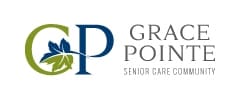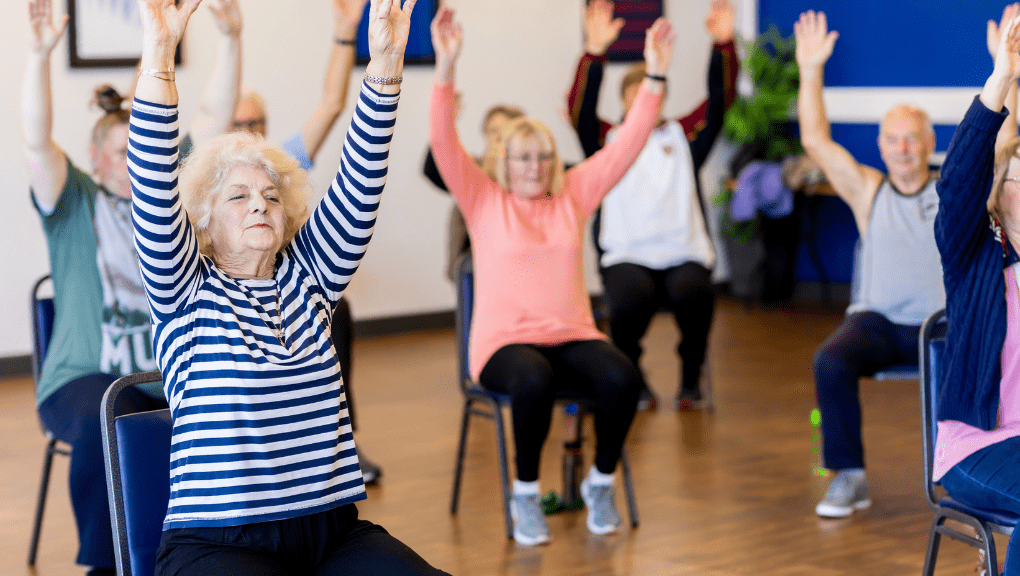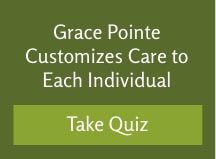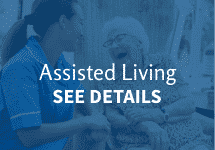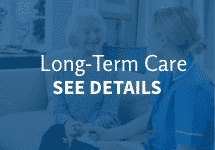There are also many mental health benefits that come from regular exercise, such as improved: mood, symptoms of anxiety and depression, and memory! According to the CDC, adults aged 65 and older need at least 150 minutes a week (for example, 30 minutes a day, 5 days a week) of moderate-intensity activity.
A Look at Some Common Exercises
The most common exercises for seniors are low-impact exercises, not to be confused with low-intensity. Low-impact exercises get your heart rate up slowly and cause less pressure on your joints. Low-impact exercises are especially good for people that suffer from pain in the joints, bones, and connective tissues.
Some popular low-impact exercises include walking, yoga, swimming, and chair exercises. Below are some great low-intensity exercises that can be done at home.
Toe Taps
Toe taps primarily target your lower body muscles, including your hip flexors, hamstrings, glutes, calves, and quadriceps.
- Sit in a sturdy chair and stretch your legs out in front of you, with your heels on the ground.
- Alternate pointing and flexing while making sure to tap your toes on the ground.
This exercise will help strengthen your core, reducing back pain and promoting balance and flexibility. Toe taps can also help improve the rotation, flexion, and extension of your trunk.
Seated Row
This exercise targets muscles in your upper back and the muscle on the outer side of the chest wall. Seated rows will help improve your posture and help protect your shoulders.
- Sit up tall in your chair.
- Extend your arms out in front of you.
- Pull your elbows back behind you, squeezing your shoulder blades together at the end of the movement.
- Keep your chest up throughout this exercise.
The seated row exercise is a great post-surgery exercise for most types of shoulder repairs. Remember that this is a low-intensity exercise and that more low-intensity repetitions are better than fewer high-intensity repetitions.
Leg Extensions
This exercise is good for strengthening the patellar ligament and quadriceps attachment for the knee.
- Sit in a solid chair with your back straight and your legs relaxed and bent at the knee.
- Exhale as you raise one leg by extending at the knee while keeping your toes pointing upwards.
- Monitor for any knee pain and continue to extend the knee until your leg is pointing straight out and away from you.
- Repeat on each side.
Seated leg extensions are great for strengthening the muscles that help keep you balanced, thus decreasing any chance of a fall.
Exercises for Seniors with Alzheimer’s
In a recent study done by Cambridge University, there was clear evidence that physical activity and especially aerobic exercise may be effective in the management of neuropsychiatric symptoms (NPS).
For seniors with Alzheimer’s and other forms of dementia, it is important to do exercises that are also mentally stimulating, such as gardening, dancing, swimming, walking, and seated exercises.
The repetition of the movements offers an activity that keeps them sharp and physically active.
In addition to physical exercises, mentally stimulating exercises are great at reducing NPS. A couple of examples of great mental activities include:
- Sudoku
- Crossword Puzzles
- Checkers/Chess
- Reading
Although dementia cannot be cured by participating in these activities, they can help slow the progression of the disease and contribute to a better quality of life.
How Does Grace Pointe Contribute to Physical Wellness?
Grace Pointe is committed to bettering the lives of the residents through daily activities that promote physical wellness and are mentally stimulating. Some of our daily activities include:
- Board Games
- Gardening
- Physical Exercise
- Crafting
- Music
To learn more about our activities and take a tour of our campus, contact Grace Pointe today!
